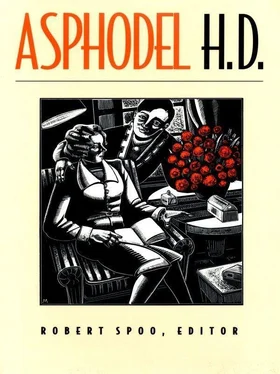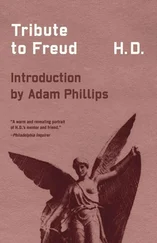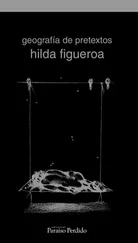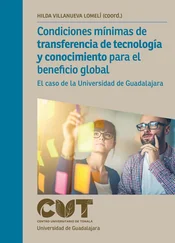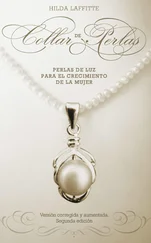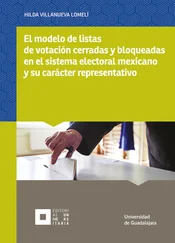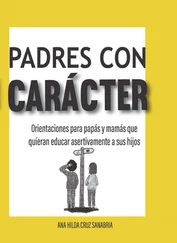Marry him. Marry him. Marry him? What is — marriage? Don’t marry him. Marry. Him. What is—“But you can’t marry him.” Who said that? Someone had said that somewhere. In an atelier that they had taken over the Seine. They lived over the Seine in the very rightest avenue. No. Clichy. That was Vérène. Marry him. Had Vérène married him? Who would marry him if Vérène didn’t marry him? Vérène married him. Vérène was the deep under-drone, the masculine bee-hum that married the stark and glittering bride veil of the Undine waters. Not waters. Walter. Vérènes violon-cello married Walter’s bride notes and that was marriage of the spirit. Marry him. Marry whom? “But you can’t marry him.” Who said that? Who kept on repeating that at shorter intervals, saying it from nowhere, from somewhere. Where was it that she said it. Who was it said it? Was it dear Eugenia. Marry him. Yes Eugenia said marry because they have a house on the Riviera. No. No. No. Eugenia would never say a thing so blankly. She said marry because he wanted babies — no because he didn’t want babies — no, because he has a degree from Munich and admires your verses. No not verses. He admires your intellect whatever he thinks he means by just that. Marry him. “But you can’t marry him.”
Who couldn’t marry whom and what was it all about and who couldn’t whoever it was marry if she (or he) so wanted it? But did they want it (he or she) and whatever was it all about? There was all this fuss about marry, marry. Do. Don’t do. Marry. Do or don’t. But go about it neatly. All a matter of technique, your verses.
What was the matter with her verses and who said it? It was George who had said it. He had taken other verses. Whose? Darrington’s sonnet sequence. But that was Darrington. A huge large name on a page. Looks well Jerrold Darrington. O that was it. Yes, it would look well Mrs. Jerrold Darrington. Marry whom? Look well, Mrs. Darrington. Nobody making faces because she was miss-miss-hit or miss. She was damn sick of it. Quaint. She was a quaint person. They would keep on saying it. Hit or miss. Well. . she wouldn’t be a quaint. . hit or miss. Mrs. Jerrold Darrington, a person. A person. Quaint, a hybrid. No hybrid.
Someone said she was funny but no hybrid. “Throw-back. She belongs here.” Someone at a party said she belonged to England. Mrs. Jerrold Darrington. Was she funny but no hybrid? Did she (someone had said so at a party) then belong to England? Marry him. “But you can’t marry him.” O of course, she couldn’t. Now, now she had remembered. It was in a wrong street in the wrong part of Philadelphia. Fayne looked caline from under her thick fringe. There was a basket spilling flowers. “Mama gets such adoration from her girls. It’s shocking.” A basket spilling flowers. “But you can’t marry him.”
No, of course she couldn’t marry George Lowndes. She should have known that from the start but she had to keep him on, to prod him on, actually went to his rooms and told him she was ready, to check-mate old Eugenia. She liked Darrington. Yes, it was Darrington who had asked her. She was on a bed, a great bed (a Zeus-bed he called it) not a boat and this was London. Of course this was London. A clock striking, that little church like a cheese-box George said. A church like a cheese box standing all arrogant just in the way of the traffic. Churches in London never moved an inch for all the traffic. That was the nice thing about them. That was the nice thing about London. Would Darrington be like that? Just there, rather square-set, a little heavy (when he wasn’t too hungry) with his damn-your-eyes attitude about parents and his understanding of Fayne Rabb. Would Darrington let her stay for Hermione (someone had said so at a party) was their someone out of Shakespeare and belonged here. She wanted an anchor. She wanted a haven. Would Darrington want her, understand when she told him about George Lowndes? After all, George had kissed and kissed her. Famished kisses like a desert wind full of sand, the wrong flowers, hybiscus, scarlet line of his really beautiful mouth. People said he was shockingly beautiful. She didn’t want to marry—“but you can’t marry him.” No, she couldn’t. She was glad though that Fay had told her. She was glad to know so exactly with such prescience that Fay did think of marriage. . the room coming clear and her thoughts coming clear at the same time. Other clocks a little later took up the late one-two. One — two. Then another very far and far and far, one — two. Two o’clock and the street lamp from outside casting light across and up. Lights in London were all mysterious. Lights in the day, lights at night. There wasn’t any more any day or night and now it was February and it was odd there were wedges of crocus, wedges of crocuses and an almond against a wall. An almond had blossomed against a wall outside the park. She had seen it on the way to Delia’s. There was no winter in London. It was all spring. Spring. Spring. November had even seemed a sort of acrid spring. Water dripping. Spring. Spring. Spring. The Pirenian spring. Darrington said she could, must write. He had made her translate some things from the Anthology. I send you, Rhodocleia for your hair. I send you Rhodocleia this wreath for your hair. I send you this wreath, one open rose, open anemone, twisted narcissus stems. No that wasn’t it. She couldn’t get it quite right. It was just as well Fayne had been so clear about it for she couldn’t marry Darrington. Fayne had been so sure, so certain. Fayne had finished with — all — that. She seemed to know what she meant and said it. She said she had developed beyond that, wasn’t that low in the biologic scale or something like it. Fayne with her clear eyes and her sullen brow. “But I’m not going to marry him, Fayne Rabb.”
“But I thought you were engaged to him and I thought you broke it off.” Was she engaged to him? Kisses arid but not here (in London) quite so full of desert heat and blinding wilting sand, met hers. Her mouth lifted and kisses bent and flowered upon it. The warmth of the tropic hybiscus red of George Lowndes was somehow tempered, somehow lost in this thing. The fog that drifted, that lifted, the late winter (or the early spring) bride veil of glistening, glamourous mist. “I love the mist, the fog. It seems I never was so happy.” Kisses nullified her, nullified her pain, there was no pain in her heart. She had forgotten simply. In London the desert sun was modified and the hyacinths lifted simply. Mist and glamour and the annihilating beauty. George Lowndes was beautiful. Here people did not laugh at George. People asked his opinion, a little reverently. It was funny watching people reverencing George. He had done a book on Dante and Provence and Renaissance Latin poetry. Georgio in London. His odd clothes not so odd, his little brush of a beard and his velvet coat and his cravats like flowers in mosaic of maroon and green and gilt and odd vermillion. George didn’t look odd though he looked more odd than ever. People seemed to understand, did not waste time commenting on his clothes. Said, “George Lowndes, odd fellow. . he has a flair for beauty.”
Georgio had a flair, had always had it. George being tender, thoughtful suddenly. “Getting enough to eat, Undine?” “O lots. Yes.” “I make a point of looking up old Mrs. Towers once a week to find out.” “Yes, George. She tells me when you drop in. She adores you.” “Had a room once years ago in my affluent days when we crossed with my damn aunt who just won’t pass out.” “O George. Don’t let poverty depress you.” “It ain’t my own exactly—” “Then whose is it?”
George seemed to be on the point of telling her something and the studio was empty. It was really empty and the floating veils of the floating laughter and people’s funny clothes that yet looked right in London and their hostess, Katherine Farr. Katherine Farr whom they admired and a little despised with her huge circulation, with her one or two novels a year, all good, all a little better than anyone else’s and yet not good enough for them. Katherine was so kind, had paused especially to ask her. People were kind. “I want you especially to wait on. I want you and George to stay and have some supper.”
Читать дальше
